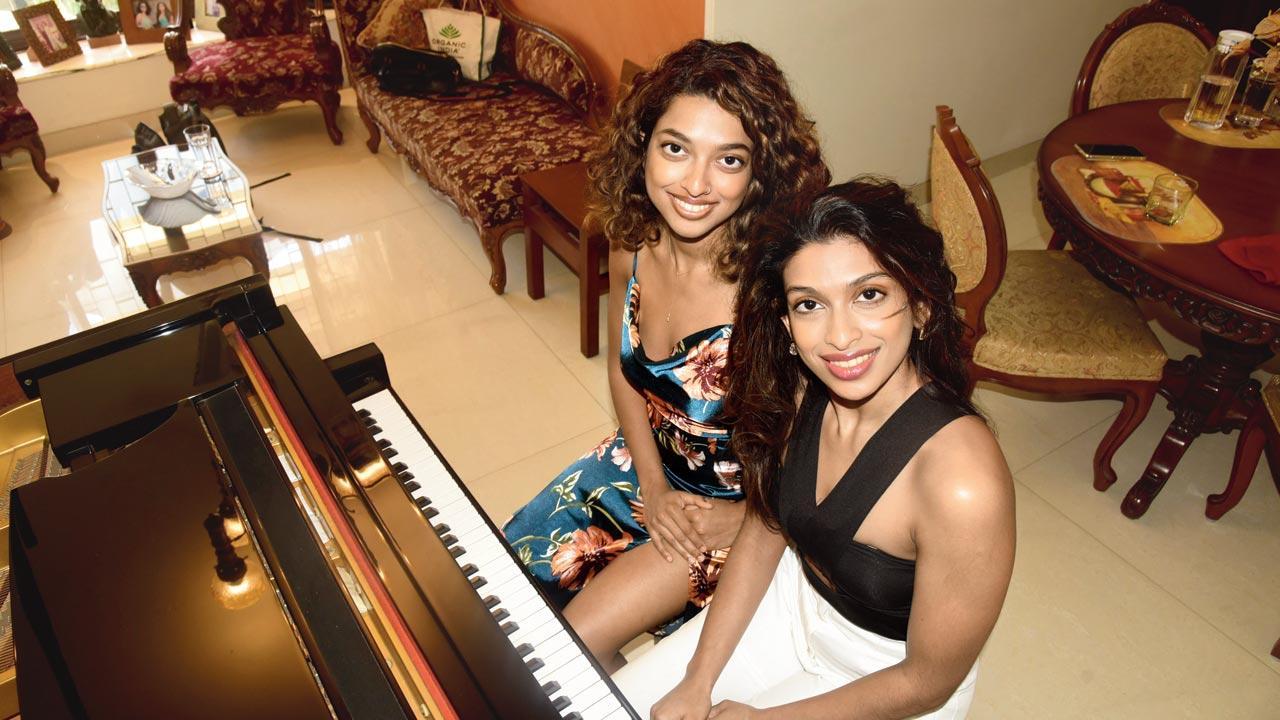Home / Sunday-mid-day / / Article /
The Chopin duet arrives in India with a Western Classical performance on June 19
Updated On: 11 June, 2023 08:09 AM IST | Mumbai | Jane Borges
Bandra’s virtuosos, Chelsea and Chloe de Souza, who have been wowing audiences with their Western Classical performances in America, are on an India tour, where in a first, they will slide four hands across the keys of a piano

Pianists Chloe (right) and Chelsea de Souza at their Bandra West home. Pic/Atul Kamble
Chelsea de Souza’s earliest memory of Western Classical music was on the breakfast table. Her “musically-inclined” father, Colin, would play records of the collected works of composer-pianist Frederic Chopin as she and her younger sister Chloe polished off their bowls of porridge. “I still have a very strong memory of listening to Chopin before heading to school,” says the Houston-based pianist, whom we meet at her family home in Bandra West. “That’s how it all began.”
The 29-year-old, who is a Steinway Young Artist—a title conferred upon only the best pianists of their time by a programme handled by Steinway’s Concert and Artist Department—has spent the last 12 years at music schools across the US pursuing an undergrad at Oberlin College and Conservatory, before a Master’s at Peabody. She is currently in the midst of completing a doctorate at Rice University. On June 19, Chelsea, as part of an ongoing musical tour in India, will lead a lecture recital The Silk Road: A Tale of Musical Trade between East and West at the NCPA, where she will be presenting the music of composers significantly influenced by their Western or Eastern contemporaries, including the late Parsi-identifying pianist Kaikhosru Shapurji Sorabji and Indian-American composer Reena Esmail. She is also one half of the pianist sister duet that recently enthralled a discerning crowd in Porvorim, Goa with their electrifying performance of the Emmanuel Chabrier’s Spanish Rhapsody.



